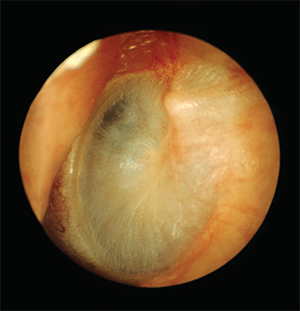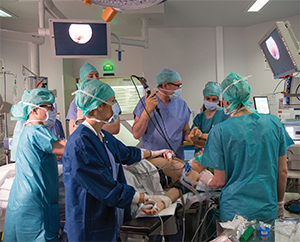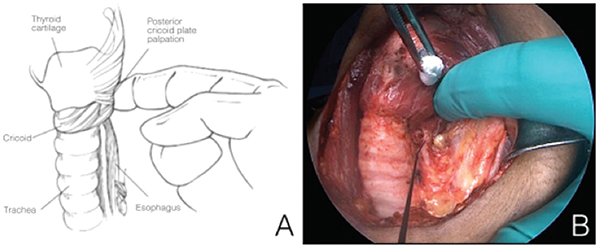
Issues Surrounding Cochlear Implants for Certain Patients with Hearing Loss
A panel of experts at the Triological Society Combined Sections Meeting discuss options in unilateral versus bilateral hearing loss

A panel of experts at the Triological Society Combined Sections Meeting discuss options in unilateral versus bilateral hearing loss

Panelists at the Triological Society Combined Sections Meeting say options are abundant for hypopharyngeal collapse

A panel of experts at the Triological Society Combined Sections Meeting discuss obstacles with medical and surgical treatment options

Is use of an endoscope during otologic surgery a fad, or a new standard?

Panelists debate indications and pitfalls of drug-induced sleep endoscopy

Experts discuss new developments in pediatric otology, hearing loss in adults, Eustachian tube treatment, and nerve monitoring during bilateral thyroidectomy at the Triological Society Combined Sections Meeting

Otolaryngologists convened at the Triological Society Combined Sections Meeting in the big easy to discuss the latest treatments, techniques, and issues

Physicians planning a family must learn to work within a system that can be less than accommodating
Advances in endoscopic laryngeal surgery have enabled practitioners to avoid tracheostomy and its attendant morbidity.
Polyp recurrence is still common after ESS, with control of polyps up to 18 months found in approximately 60% to 70% of patients
Larynx-preserving surgery alone and larynx-preserving surgery with radiation were associated with improved survival compared to radiation alone.

Target musculature is the primary innervated muscle that produces the highest EMG amplitude and is the sole muscle grossly contracting with nerve stimulation
A look at the impact the pediatric tonsillectomy guidelines, published by the AAO-HNS in January 2011, have had on individual
practicing clinicians
An evaluation of a child with sleep-disordered breathing requires a careful assessment of symptoms as well as tonsil size

The decision to proceed with elective neck dissection (END) is based on the probability of finding microscopic disease in a patient without clinical evidence of lymph node metastases

The use of therapeutic anticoagulation in the treatment of LST remains controversial

The decision to interrupt antiplatelet therapy must balance the patient’s thromboembolic risk and perioperative bleeding risk